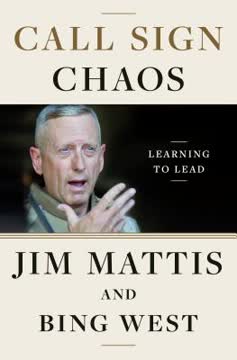Key Takeaways
1. The internet has transformed from a communication tool to a battlefield
"The internet changed this, fast. Making an international connection soon became as easy as knowing an email address, then just a name."
Global connectivity has fundamentally altered how conflicts are fought. The internet's evolution from a simple communication network to a complex digital ecosystem has created new avenues for warfare. This transformation has made information itself a potent weapon, capable of shaping perceptions, swaying opinions, and even influencing real-world events.
Key shifts:
- From limited access to ubiquitous connectivity
- From static websites to dynamic social platforms
- From government control to decentralized networks
The battlefield now extends beyond physical territories, encompassing the vast digital landscape where ideas clash, narratives compete, and influence is wielded with unprecedented speed and reach. This new reality has blurred the lines between civilian and combatant, as anyone with an internet connection can potentially become a participant in global conflicts.
2. Social media platforms have become powerful shapers of reality and opinion
"If you ride a tiger, it's hard to get off."
Platform dominance has led to a concentration of power in the hands of a few tech giants. Companies like Facebook, Twitter, and YouTube have evolved from simple social networking sites to influential arbiters of information and public discourse. Their algorithms and content moderation policies now play a crucial role in determining what information reaches users, effectively shaping their perception of reality.
Impact of social media platforms:
- Curate personalized information feeds
- Amplify certain voices and perspectives
- Influence political discourse and election outcomes
- Shape public opinion on social issues
This unprecedented control over information flow has raised concerns about the accountability and responsibility of these platforms. As they grapple with their newfound power, social media companies face the challenge of balancing free speech with the need to combat misinformation and harmful content.
3. Disinformation campaigns exploit human psychology and platform algorithms
"Anger is more influential than other emotions like joy," the researchers bluntly concluded.
Emotional manipulation lies at the heart of successful disinformation campaigns. Bad actors have learned to exploit human psychology and the mechanics of social media platforms to spread false or misleading information rapidly. Anger and outrage, in particular, have proven to be powerful drivers of engagement and virality.
Tactics used in disinformation campaigns:
- Appealing to emotions, especially anger and fear
- Exploiting cognitive biases like confirmation bias
- Leveraging social proof and group dynamics
- Gaming platform algorithms for maximum visibility
These campaigns take advantage of the human tendency to seek information that confirms existing beliefs and to share content that elicits strong emotional responses. By understanding and exploiting these psychological vulnerabilities, disinformation agents can effectively manipulate public opinion and sow discord on a massive scale.
4. Memes and viral content are the new weapons of digital warfare
"Memes are the vessels by which culture is transmitted—and a crucial instrument by which LikeWar is fought."
Viral transmission of ideas through memes has become a powerful tool in digital conflicts. Memes, with their ability to convey complex ideas in a simple, shareable format, have emerged as the perfect vehicle for propagating information and shaping narratives in the fast-paced digital environment.
Characteristics of effective memes in digital warfare:
- Simplicity and ease of understanding
- Emotional resonance with target audience
- Adaptability to different contexts
- Potential for rapid spread across platforms
Memes can quickly mobilize public opinion, ridicule opponents, or simplify complex issues into easily digestible formats. Their power lies in their ability to spread organically through social networks, often bypassing traditional gatekeepers of information. This has made them a favored tool for both grassroots movements and sophisticated state-sponsored disinformation campaigns.
5. Online extremism and radicalization thrive in echo chambers
"Once, every village had an idiot. It took the internet to bring them all together."
Digital tribalism has led to the formation of insular online communities that reinforce and amplify extreme views. The internet's ability to connect like-minded individuals across geographical boundaries has facilitated the growth of echo chambers where radical ideas can flourish unchallenged.
Factors contributing to online radicalization:
- Algorithmic content recommendation reinforcing existing beliefs
- Social media "filter bubbles" limiting exposure to diverse viewpoints
- Anonymous online environments emboldening extreme expressions
- Rapid spread of conspiracy theories and fringe ideologies
These echo chambers create a breeding ground for extremism by providing a sense of community and validation for those holding radical views. The constant reinforcement of these ideas, coupled with the absence of opposing viewpoints, can lead to a gradual radicalization process that is difficult to reverse.
6. Governments and militaries now wage information warfare through social media
"We have an army of digital soldiers . . . 'cause this was an insurgency, folks, 'cause it was run like an insurgency. This was irregular warfare at its finest, in politics."
State-sponsored manipulation has become a critical component of modern warfare and geopolitics. Governments and military organizations have recognized the power of social media as a tool for influencing public opinion, both domestically and internationally. This has led to the development of sophisticated information warfare strategies that leverage digital platforms.
Tactics in government-led information warfare:
- Coordinated disinformation campaigns
- Use of bot networks and troll farms
- Exploitation of existing social divisions
- Targeted advertising and microtargeting
These digital operations can be used to sway elections, undermine adversaries, or shape public perception of global events. The low cost and potential high impact of these tactics have made them an attractive option for both powerful nations and smaller state actors seeking to punch above their weight in the international arena.
7. Content moderation faces immense challenges in scale and complexity
"Imagine a future in which your interface agent can read every newswire and newspaper and catch every TV and radio broadcast on the planet, and then construct a personalized summary."
Moderation dilemmas plague social media platforms as they struggle to balance free speech with the need to combat harmful content. The sheer volume of user-generated content, combined with the nuanced nature of many moderation decisions, presents an unprecedented challenge for these companies.
Key challenges in content moderation:
- Enormous scale of content requiring review
- Difficulty in defining and enforcing consistent policies
- Cultural and linguistic barriers in global moderation
- Balancing user privacy with content oversight
- Combating sophisticated evasion tactics by bad actors
Platforms have turned to a combination of human moderators, user reporting systems, and artificial intelligence to tackle these challenges. However, each approach comes with its own limitations and potential for bias or error. The ongoing struggle to effectively moderate content while preserving open discourse remains one of the most pressing issues facing social media companies.
8. Artificial intelligence is reshaping the landscape of online information
"Neural networks can also be used to create deep fakes that aren't copies at all. Rather than just study images to learn the names of different objects, these networks can learn how to produce new, never-before-seen versions of the objects in question."
AI-driven manipulation is revolutionizing the creation and dissemination of online content. Advanced artificial intelligence technologies, particularly neural networks and deep learning algorithms, are enabling the production of increasingly sophisticated and realistic fake content. This development poses new challenges for information integrity and trust online.
AI applications in information manipulation:
- Deep fake video and audio creation
- Automated text generation and chatbots
- Content recommendation and curation algorithms
- Advanced image and video editing tools
The ability of AI to generate or manipulate content at scale threatens to flood the information ecosystem with synthetic media that is increasingly difficult to distinguish from reality. This technology has the potential to amplify disinformation campaigns, create convincing false narratives, and further erode public trust in traditional sources of information.
9. The democratization of information has both empowered and endangered society
"If you were a citizen of one nation trying to communicate directly with a citizen of another, the government was likely to play a part in the process, whether certifying postage or regulating the traffic of international telegraph lines. If the two states fell into war or a trade dispute or simply didn't like each other, such communication halted."
Information accessibility has dramatically increased, bringing both opportunities and risks. The internet and social media have broken down traditional barriers to information access and communication, enabling unprecedented global connectivity and knowledge sharing. However, this democratization of information has also created new vulnerabilities and challenges for society.
Effects of information democratization:
- Empowerment of marginalized voices and grassroots movements
- Rapid spread of both knowledge and misinformation
- Disruption of traditional power structures and gatekeepers
- Increased potential for manipulation and social engineering
While the free flow of information has the potential to foster greater understanding and collaboration across borders, it has also created new avenues for conflict and division. The challenge lies in harnessing the positive aspects of this information revolution while mitigating its potential for harm and exploitation.
Last updated:
FAQ
What's LikeWar: The Weaponization of Social Media about?
- Exploration of warfare: LikeWar examines how social media has transformed modern warfare, blending traditional conflict with information warfare. It highlights social media platforms as battlegrounds for narratives and public opinion.
- Weaponization of information: The book discusses how misinformation and propaganda are strategically used to achieve political goals, destabilizing societies and influencing outcomes.
- Case studies: Authors P.W. Singer and Emerson T. Brooking provide real-world examples, such as the Arab Spring, ISIS, and the 2016 U.S. presidential election, to illustrate social media's dual role in activism and extremism.
Why should I read LikeWar: The Weaponization of Social Media?
- Understanding modern conflicts: The book offers insights into how social media shapes contemporary conflicts and political landscapes, emphasizing the importance of digital literacy.
- Awareness of misinformation: It raises awareness about the prevalence and consequences of misinformation, encouraging critical evaluation of online information.
- Strategic insights: The authors provide strategies for governments and organizations to navigate social media challenges, relevant for policymakers and anyone interested in technology's societal impact.
What are the key takeaways of LikeWar: The Weaponization of Social Media?
- Social media as a battlefield: Social media platforms are central to modern warfare, where battles for attention and influence are fought, blurring lines between military conflict and information warfare.
- Virality over truth: The book argues that virality often trumps truth, leading to misinformation and conspiracy theories, impacting public discourse and democracy.
- Role of algorithms: Algorithms shape what users see, creating echo chambers that reinforce beliefs, leading to polarization and a distorted understanding of reality.
What are the best quotes from LikeWar: The Weaponization of Social Media and what do they mean?
- “Media weapons [can] actually be more potent than atomic bombs.”: This quote underscores the power of information in shaping public opinion and conflicts, suggesting narratives can have profound effects.
- “You are now what you share.”: Reflects the idea that online actions define identities, emphasizing the importance of mindful online presence.
- “The war of narratives has become even more important than the war of navies, napalm, and knives.”: Highlights the shift in warfare dynamics, where controlling narratives is as critical as military might.
How does LikeWar: The Weaponization of Social Media define information warfare?
- Strategic use of information: Information warfare involves using information to achieve political or military objectives, including spreading propaganda and disinformation.
- Psychological operations: It includes psychological tactics to influence public perception and behavior, often more effective than traditional military methods.
- Modern context: With social media's rise, information warfare has evolved, making platforms essential tools for state and non-state actors.
What role do algorithms play in LikeWar: The Weaponization of Social Media?
- Shaping user experience: Algorithms determine what content users see, influencing public opinion and creating filter bubbles that reinforce existing beliefs.
- Amplifying misinformation: They can inadvertently prioritize sensational content, leading to the spread of false narratives and societal polarization.
- Platform responsibility: The authors argue for social media companies to address algorithm impacts, suggesting transparency is crucial for an informed public.
How does LikeWar: The Weaponization of Social Media address the issue of misinformation?
- Misinformation as a weapon: The book discusses how misinformation is used strategically to manipulate public perception and achieve political goals.
- Real-world consequences: It provides examples of misinformation campaigns, such as those in the 2016 U.S. election, illustrating their impact.
- Call for vigilance: The authors advocate for increased awareness and critical thinking to combat misinformation, emphasizing collective responsibility.
What examples of social media's impact on warfare does LikeWar: The Weaponization of Social Media provide?
- ISIS and social media: Details how ISIS used social media for recruitment and propaganda, transforming modern conflict dynamics.
- Trump's rise to power: Analyzes how Donald Trump's Twitter use reshaped political communication, bypassing traditional media to control narratives.
- Arab Spring: Highlights social media's role in organizing protests, showing its power in activism and real-time updates.
How does LikeWar: The Weaponization of Social Media suggest we combat the challenges posed by social media?
- Promote media literacy: Emphasizes educating individuals on information nature and tactics used in information warfare, including critical thinking skills.
- Encourage responsible sharing: Advocates for mindful social media sharing, verifying information before spreading it.
- Support ethical tech practices: Calls for social media companies to combat misinformation and promote accurate reporting.
What is the significance of the title LikeWar: The Weaponization of Social Media?
- Dual meaning: Reflects social media interactions (likes) and conflicts (war), highlighting platforms as battlegrounds for narratives.
- Cultural commentary: Comments on the obsession with validation through likes, driving virality over truth, impacting society and politics.
- Call to action: Urges addressing social media challenges, reminding readers of high stakes in navigating this landscape.
How does LikeWar: The Weaponization of Social Media illustrate the relationship between social media and terrorism?
- Recruitment and propaganda: Details how terrorist organizations, like ISIS, use social media for global recruitment and propaganda.
- Case studies: Provides examples of social media exploitation by terrorists, highlighting challenges for governments and tech companies.
- Security implications: Discusses national security implications, emphasizing comprehensive strategies to address social media-terrorism intersections.
How does LikeWar: The Weaponization of Social Media envision the future of information warfare?
- Evolving tactics: Suggests information warfare will continue evolving with new technologies and strategies to manipulate public perception.
- Role of AI: Discusses AI's potential role in perpetrating and combating misinformation, raising ethical questions.
- Proactive measures: Calls for proactive measures from governments, tech companies, and individuals to address information warfare challenges.
Review Summary
LikeWar explores the weaponization of social media in modern warfare and politics. Readers praise its eye-opening insights into how online platforms are used to manipulate public opinion, influence elections, and even impact real-world conflicts. The book covers topics like Russian disinformation campaigns, ISIS recruitment tactics, and the role of social media in recent political events. While some criticize its bias and repetitiveness, most find it an essential read for understanding the dangers and complexities of our digital age.
Similar Books








Download PDF
Download EPUB
.epub digital book format is ideal for reading ebooks on phones, tablets, and e-readers.






